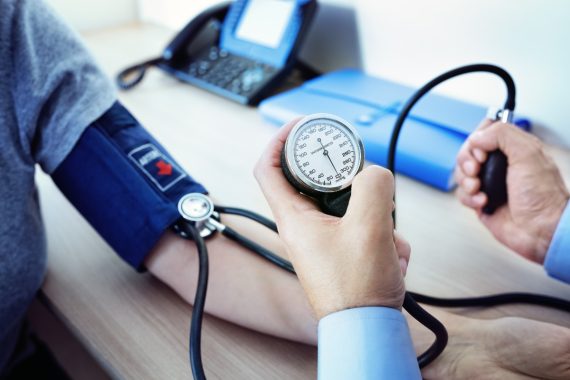Exclusive GP practices in South Gloucestershire have been told to limit the number of NHS Health Checks that they provide, Pulse can reveal.
GPs have warned that this means that practices can usually offer checks to only 62% of eligible patients, with deprived practices further penalised.
It comes after Pulse revealed last month that GP practices in Warwickshire were told they may have to limit the number of NHS Health Checks, due to ‘budget constraints’ faced by the local authority.
The national prevention programme is meant to be open to all adults aged 40 to 74 years old who do not have any pre-existing health conditions such as stroke, diabetes, kidney disease, heart conditions including diagnosed high blood pressure and high cholesterol, and patients have been encouraged to ‘book at their local GP’.
According to documents seen by Pulse, in February practices were sent a letter by South Gloucestershire Council detailing their ‘claimable allowance’ for the NHS Health Check programme, representing the ‘maximum claimable activity’ from individual practices for this financial year.
Pulse understands that these funding limits mean that practices can only carry out and be paid for checks for 62% of eligible patients.
The programme adopts a ‘two-tier payment tariff’, with a standard rate of £23 per check and an ‘enhanced’ rate of £31 per check.
Practices receive an enhanced rate payment where a completed NHS Health Check is delivered to an eligible patient living in an area of high social deprivation (IMD level 1), or living in IMD levels 2-5, who meet one or more of the following criteria:
- Those registered with a physical or learning disability
- Those registered with a mental health condition
- Those who are unemployed
- Those from Black-African, Black-Caribbean and South-Asian ethnic backgrounds
- Those who smoke
- Those who are unpaid carers
- Those with Armed Forces status
- Those from the LQBTQ+ community
GPs warned that this model means that deprived practices can only deliver 46% of eligible health checks per year, rather than 62%, which seems ‘unfair’, and this has also been raised with the council.
One GP partner told Pulse: ‘Only 60% of people (lower if happens to be a deprived area) can actually have a health check when supposedly entitled to. The amounts of money were fairly small for the workforce requirements, and have just shrunk.
‘This “targeted model” means that deprived practices can only deliver 46% of eligible checks per year rather 62% if they aren’t deprived, which seems unfair to those populations.’
The council did not directly respond to Pulse’s question on why the limits were put in place, but said that the programme utilises a targeted model and ‘prioritises delivery towards those at greatest risk of developing CVD’.
It added that individual GP practices have discretion to invite eligible patients based on their ‘pre-determined local criteria’ and therefore may choose to provide ‘a universal offer to patients’.
A spokesperson said: ‘This is in accordance with the NHS Health Check Best Practice Guidance, which encourages the delivery of checks in a way that prioritises resources and effort into inviting and engaging those who are most likely to be at higher risk of CVD.
‘This includes those living in areas of high social deprivation, those from minority ethnic backgrounds and those who smoke.
‘Whilst we incentivise GP practices to target high-risk patients, we work closely with the Office of Health Improvement and Disparities (OHID) to plan and monitor our commissioning of NHS Health Checks which remains a key focus for our Public Health team.’
The council added that GP practices in the area have collectively delivered 6,465 NHS Health Checks during 2024/25. Of these, 2,980 were ‘delivered to targeted groups’.
‘We are committed to NHS Health Checks and will be working in partnership with our GP practices in supporting greater levels of delivery,’ it added.
A spokesperson from Bristol, North Somerset and South Gloucestershire ICB told Pulse: ‘We work very closely with our local authority colleagues and wider partners to make effective use of resources and ensure the best possible care is delivered to our local communities.
‘As an integrated care system, we have implemented a range of strategies to engage with our diverse population and deliver outreach support to groups who may not proactively engage with health services, including NHS health checks.
‘This has included cardiovascular disease case finding in community settings, such as barber shops and religious venues, and pharmacy-led hypertension case finding at local events.’
Pulse has contacted NHS England for comment.
Last year, the public spending watchdog said that the Government should consider giving GPs incentives to do NHS Health Checks via QOF.
And an analysis of NHS data showed that three in five people invited for an NHS Health Check in the previous year did not take up the offer.













Which Practice is spending their time doing 3,500 Health Checks on patients who are not eligible for them?